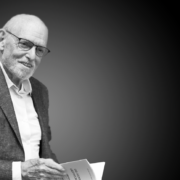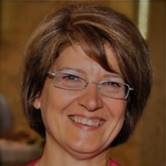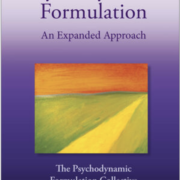Psychodynamic Formulation: an Expanded Approach
Panel: Shirin Ali, M.D;. Ruth Graver, M.D.; Aaron Reliford, M.D.; Anna Schwartz, M.D.; Susan Vaughan, M.D.
Tuesday, November 1, 2022 at 8PM
Location: Register via the button below to receive the Zoom link
The COVID-19 pandemic brought significant individual, community, and societal changes as we all faced concerns about health and safety while also being forced to reckon with longstanding issues of structural racism and racial injustice highlighted by the murders of George Floyd, Ahmaud Aubery, and Brianna Taylor at the hands of law enforcement. Biases are also embedded in the institutional and systemic racism present within our field of psychoanalysis and its psychodynamic psychotherapeutic treatments.
In 2020, The Psychodynamic Formulation Collective formed a group, consisting of the original authors of Psychodynamic Formulation (Wiley Blackwell 2013) and additional new authors, to revise this important text to create an expanded approach to psychodynamic formulation. We undertook this new edition of the book to examine biases within our profession and to present a reinvigorated emphasis on the impacts of culture and society on psychodynamic formulation. The book emphasizes the importance of lived experience in how we formulate patients and how bias in the therapeutic relationship can contribute to the perpetuation of trauma. In our approach that we will present, we have attempted to highlight blindspots in our field, to place their evaluation within our field and with our patients front and center, and to give equal and heavy consideration to the impact of inequities and the impact of society in a new approach to psychodynamic formulation.
Presenters:
Shirin Ali, MD is a clinical and academic psychiatrist and psychoanalyst. She lectures on psychopathology and psychodynamic formulation to Columbia residents and supervises residents in psychodynamic psychotherapy and supportive psychotherapy. She also co-chairs and teaches in the Process and Diversity curricula to psychoanalytic candidates at the Columbia Center for Psychoanalytic Training and Research. Dr. Ali is the recipient of the Columbia Psychoanalytic Center’s John F. O’Connor award for teaching psychodynamic concepts to medical students. She is in full time practice in Greenwich Village with a focus on mood and anxiety disorders, psychosis, identity, emerging adulthood and psychosis. Prior to starting her private practice, she worked as an inpatient attending at the New York State Psychiatric Institute for several years. Her academic interests include psychoanalysis and culture.
Deborah Cabaniss, MD is the Associate Director of Residency Training and Director of Psychotherapy Training in the Department of Psychiatry, . She is also the Director of the Virginia Apgar Academy of Medical Educators at the Columbia University College of Physicians and Surgeons, and is a Training and Supervising Analyst at the Columbia University Center for Training and Research.
Dr. Cabaniss’s research interests primarily involve psychoanalytic and psychiatric education and she has authored many articles on this topic. She has been the recipient of many teaching awards, including a 2014 Presidential Teaching Award for Outstanding Teaching from Columbia University. She is a two time Teichner Scholar of the American Academy of Psychoanalysis and Dynamic Psychiatry, and is the lead author of “Psychodynamic Psychotherapy: A Clinical Manual” and “Psychodynamic Formulation” which have become core reading in psychiatry residencies across the country and Canada and which are being translated into Mandarin, Korean, and Farsi.
Ruth Graver, MD is a Training and Supervising Analyst at the Columbia University Center for Psychoanalytic Training and Research where she is co-chair of the Writing Program and former co-chair of the Curriculum Committee (2013-2017). She teaches in a variety of courses in psychoanalysis and psychotherapy and is the 2016 recipient of the Howard Klar Teacher of the Year Award from the Center. Dr. Graver has a wide range of interests in psychoanalysis and psychiatry including clinical theory, technique and Attachment Theory.
Aaron Reliford, MD is Vice Chair for Diversity Equity and Inclusion and Associate Clinical Professor of Child & Adolescent Psychiatry, Child and Adolescent Psychiatry Fellowship Training Director at NYU, and both the Director of Child and Adolescent Psychiatry and the Associate Medical Director of Behavioral Health Sunset Terrace Family Health Center of NYU Langone Brooklyn. Dr Reliford graduated from the University of Chicago where he completed his undergraduate BS degree in Biology with honors. He received his MD from NYU School of Medicine. He subsequently completed his adult residency training at Columbia University and the New York State Psychiatric Institute, and completed his child psychiatry fellowship at the NYPH Child & Adolescent Training program of Columbia and Cornell Universities. He completed psychoanalytic training at the Columbia Psychoanalytic Center in 2019. Prior to starting his work at NYU, he served as the Director and Chief of Service of the Division of Child and Adolescent Psychiatry at Harlem Hospital, where he also served as the Child & Adolescent Psychiatry Fellowship Training Director. Dr Reliford’s clinical research interests telepsychiatry, racial health disparities in pediatric mental health, identity development in minority youth, cultural psychiatry, pediatric psychopharmacology, effects of early trauma on development of psychopathology, child parent psychotherapy, psychoanalysis, and dynamic/insight oriented psychotherapy.
Anna Schwartz MD is a faculty member of the Columbia University Center for Psychoanalytic Training and Research and the co-chair of the psychotherapy division at the Center. She is also an Assistant Clinical Professor of Psychiatry at Columbia, where she teaches and supervises psychiatry residents. She has a private practice in New York City.
Susan Vaughan, MD is distinguished psychiatrist, psychoanalyst, educator, and scholar. She has written three best-selling books: The Talking Cure: The Science Behind Psychotherapy about how psychotherapy changes the brain, Half Empty Half Full about optimism and Viagra: A Guide to the Phenomenal Potency-promoting Drug. Dr. Vaughan is Associate Professor of Psychiatry at Columbia University’s Vagelos College of Physicians and Surgeons where she serves as the Director of Columbia University’s Center for Psychoanalytic Training and Research. She is also a training and supervising analyst at the Columbia Center. Dr. Vaughan graduated magna cum laude from Harvard College and received her medical degree from Columbia’ Vagelos College of Physicians and Surgeons (Alpha Omega Alpha). Following medical school, Dr. Vaughan remained at Columbia where she completed her psychiatry residency, and NIMH-funded research fellowship in affective and anxiety disorders, and psychoanalytic training.
The Psychodynamic Formulation Collective is a group of psychiatrists and psychoanalysts who came together following George Floyd’s murder and nationwide protests against police brutality to address the historical neglect of sociocultural context in psychodynamic formulation, in particular the effect of social oppression.
Learning objectives:
After attending this session, participants should be able to:
- Apply an understanding that psychodynamic formulation of patients must factor in the larger influences of society and culture on the development of the conscious and unconscious mind, including the influence of inequity and discrimination.
- Describe how culture, identity, and the biases of the clinician affect the creation of psychodynamic formulations.
Register







